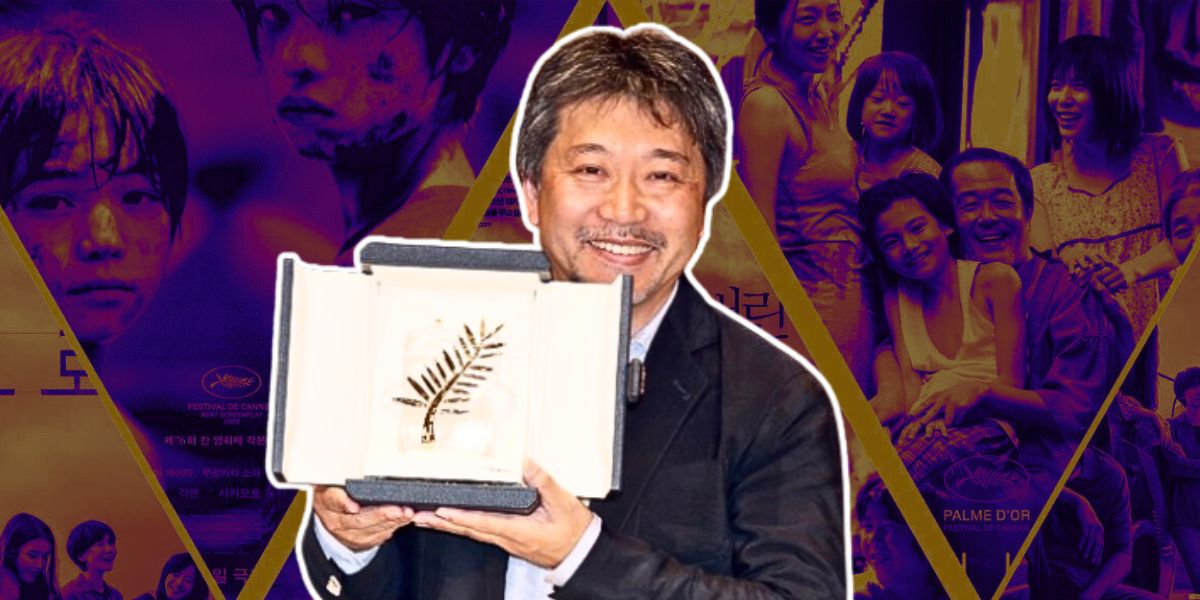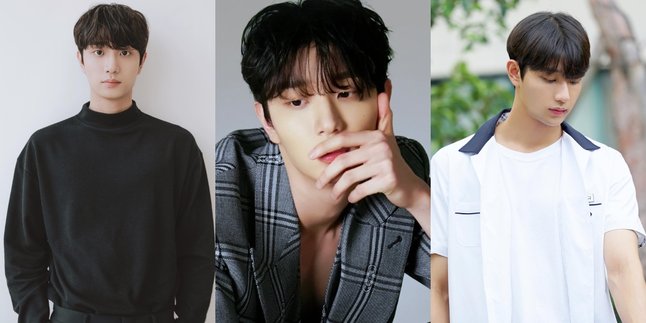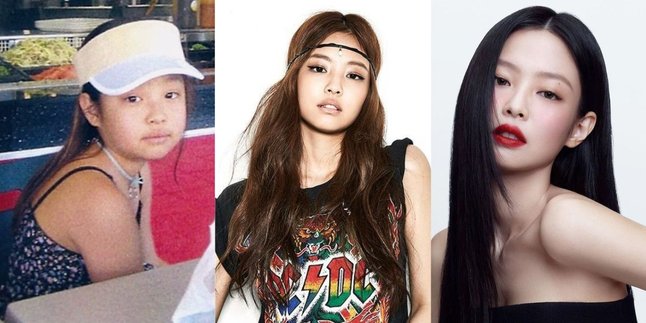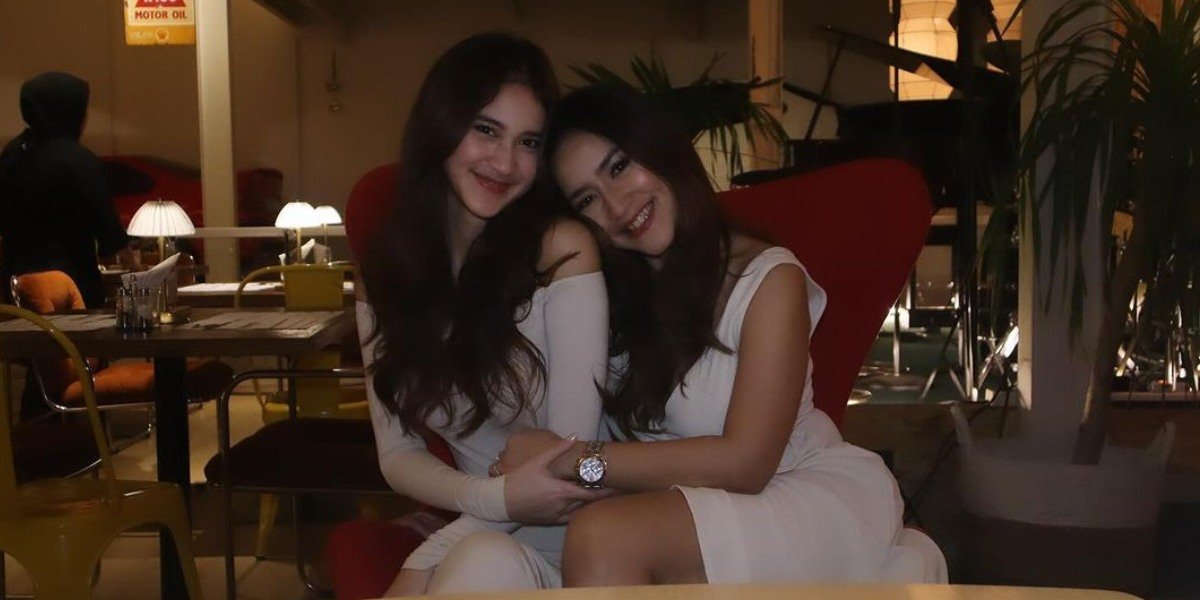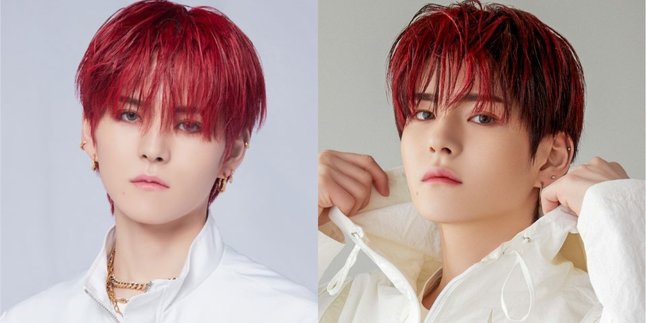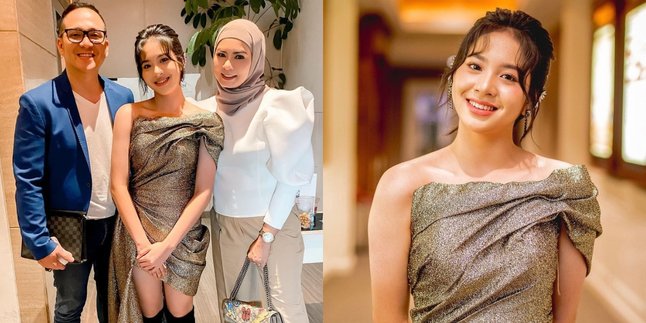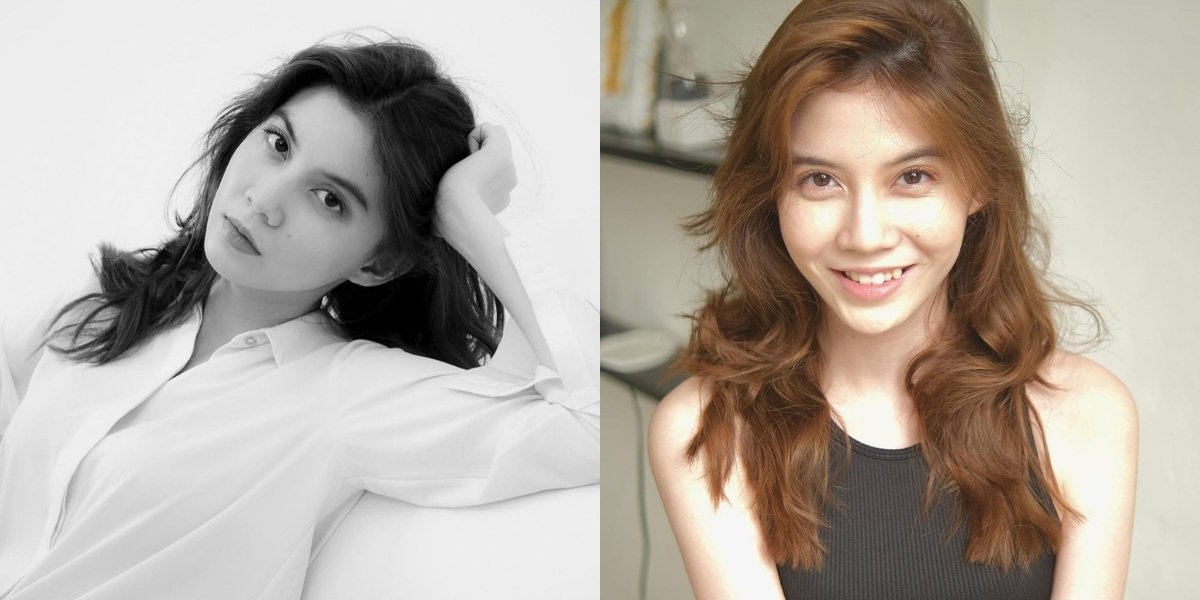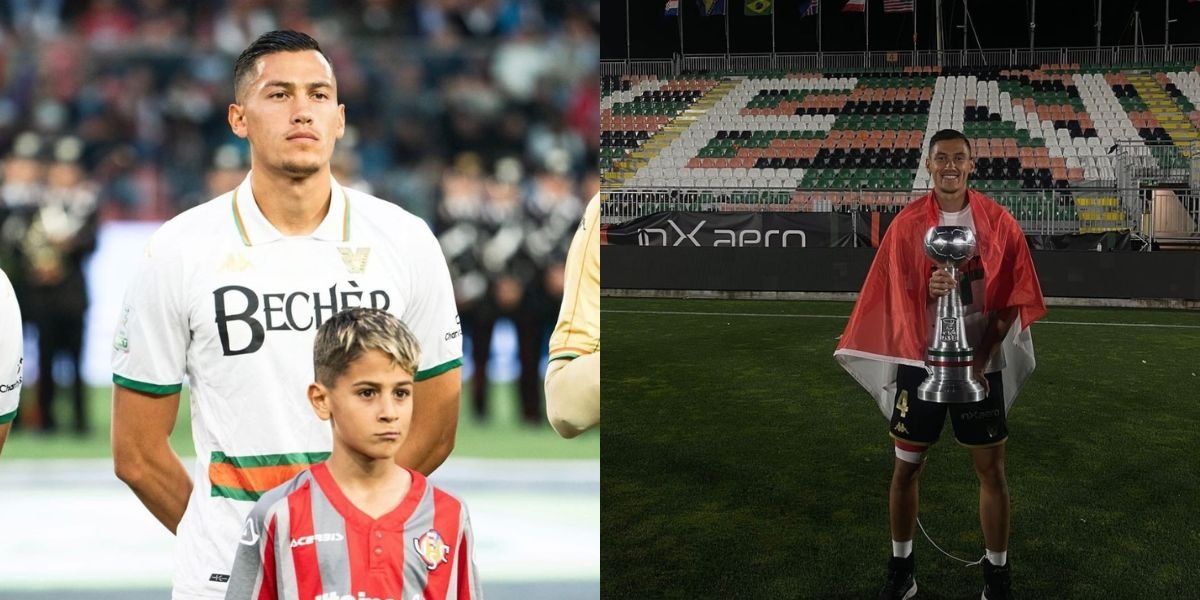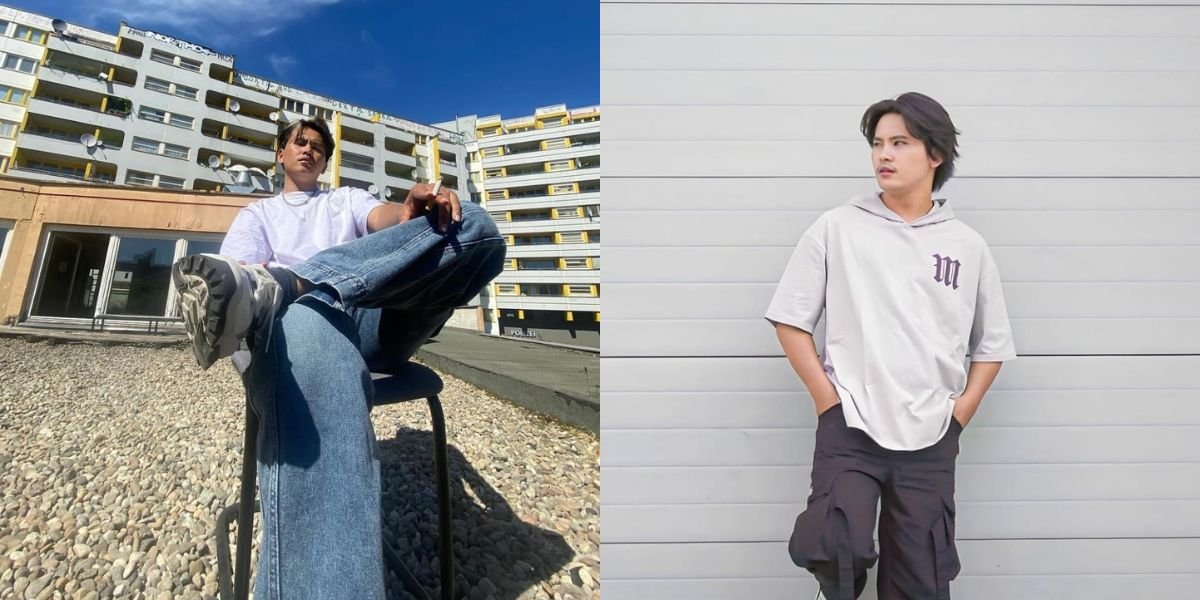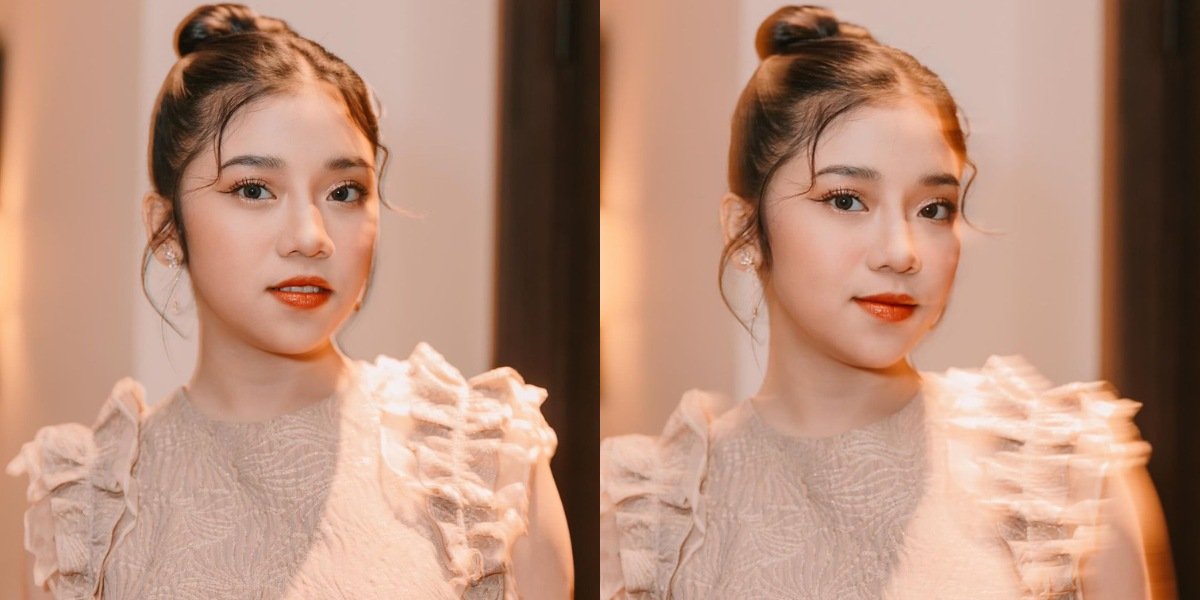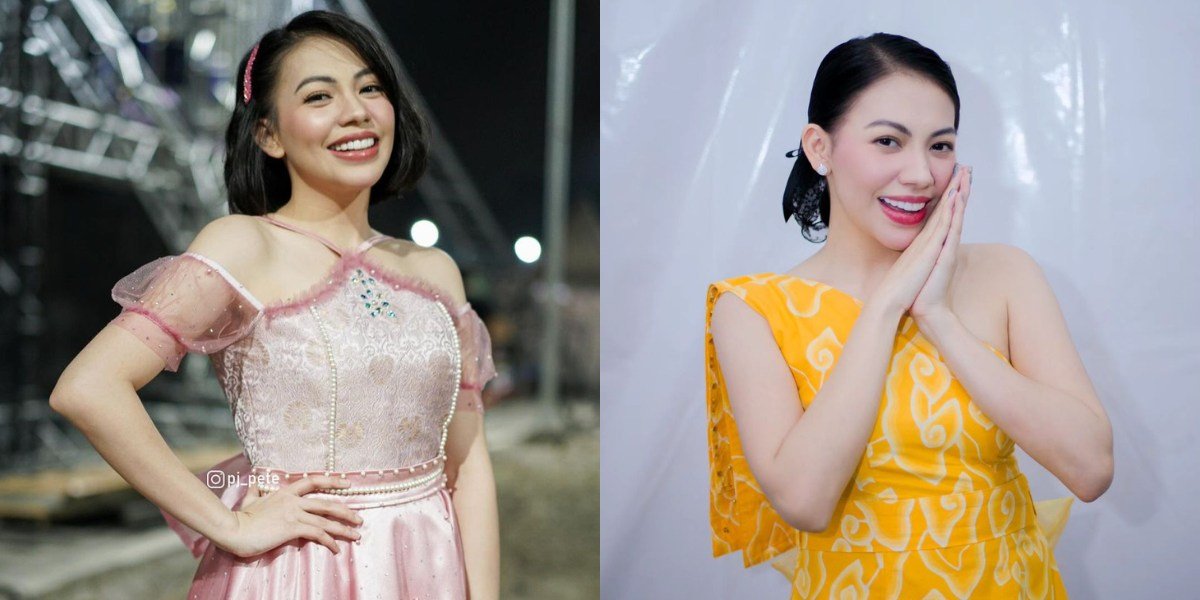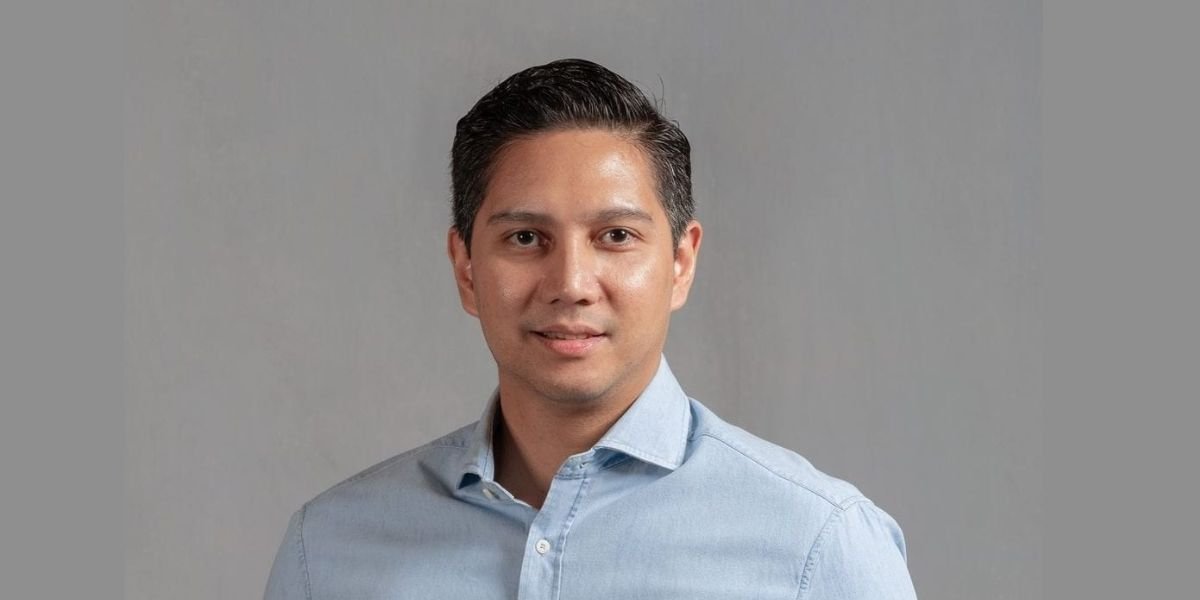Kapanlagi.com - Written by: Lily Ariani
If in South Korea there is Bong Joon Ho who passionately addresses humanitarian issues in his films, then in Japan there is Hirokazu Kore-eda. Kore-eda himself is no stranger to the world of cinema. Not only is he among the legendary Japanese filmmakers, but Kore-eda has also made a name for himself as a prominent director on the international stage.
Throughout his approximately 33-year career, Kore-eda has produced many successful works that touch the soul. He is known for his films that revolve around family themes. Furthermore, Kore-eda never fails to highlight the stories of marginalized individuals.
Take, for example, NOBODY KNOWS. The film, released in 1988, is based on a true story of child abandonment in Sugamo, Tokyo. Then, there is SHOPLIFTERS, a story about a poor family in the outskirts of Japan forced to commit crimes. And most recently, MONSTER, which portrays oppressed children due to societal norms.
"He (Hirokazu Kore-eda) is a director and storyteller who likes to dig beneath the surface and expose the issues and relationships that are forgotten or faced by the Japanese people," said Kaori Shoji, a film critic from The Japan Times.
1. Early Career in the Television World
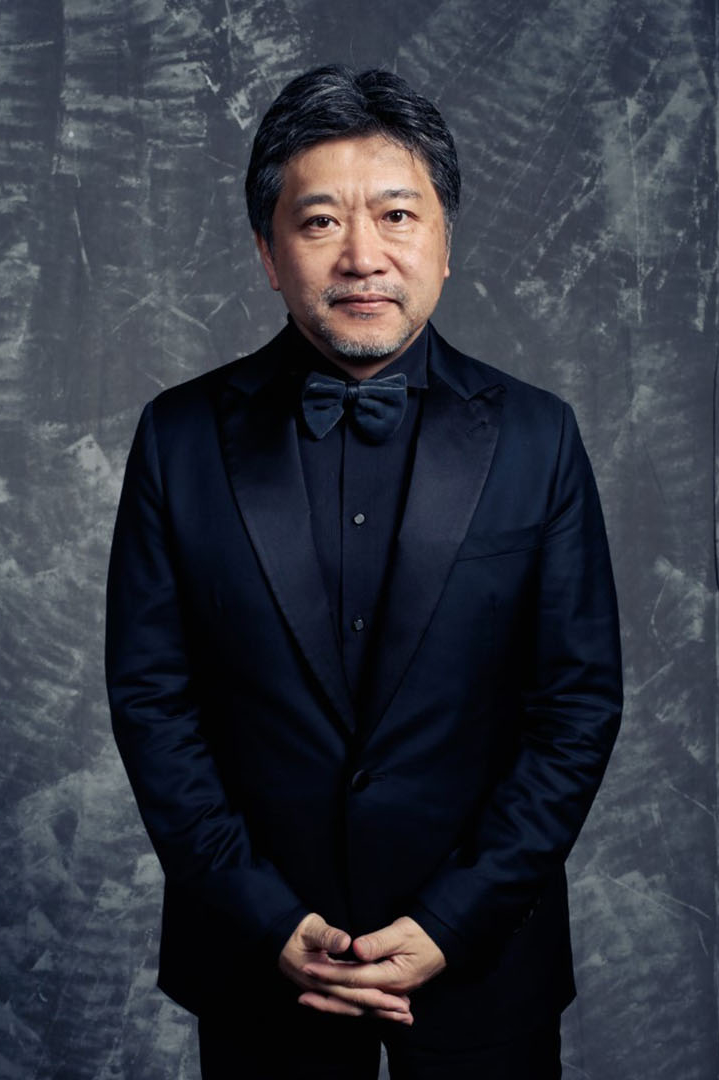
IMDb
Studying in the Letters, Arts, and Sciences Department at Waseda University, Kore-eda initially aspired to be a novelist. However, the path after graduating led him to TV Man Union, the first independent television production company in Japan. There, he worked as an assistant director for documentary projects.
Three years later, in 1991, Kore-eda released his own television documentary titled LESSONS FROM A CALF. He consistently worked on documentary programs that addressed humanistic issues and eventually ventured into feature films with MABOROSI in 1995.
Although the main story was adapted from Teru Miyamoto's novel Maboroshi no Hikari, some parts were also inspired by Kore-eda's personal experiences. One of them is Kore-eda's grandfather, who suffered from dementia, just like Yumiko's grandmother in the film MABOROSI.
This debut film, which combined documentary and fiction narratives, successfully won the Golden Osella Award at the Venice Film Festival. MABOROSI also received positive responses from renowned American film critics, Siskel and Ebert. Moreover, MABOROSI even achieved a rating of 100% on the Rotten Tomatoes website.
2. International Film Festival King
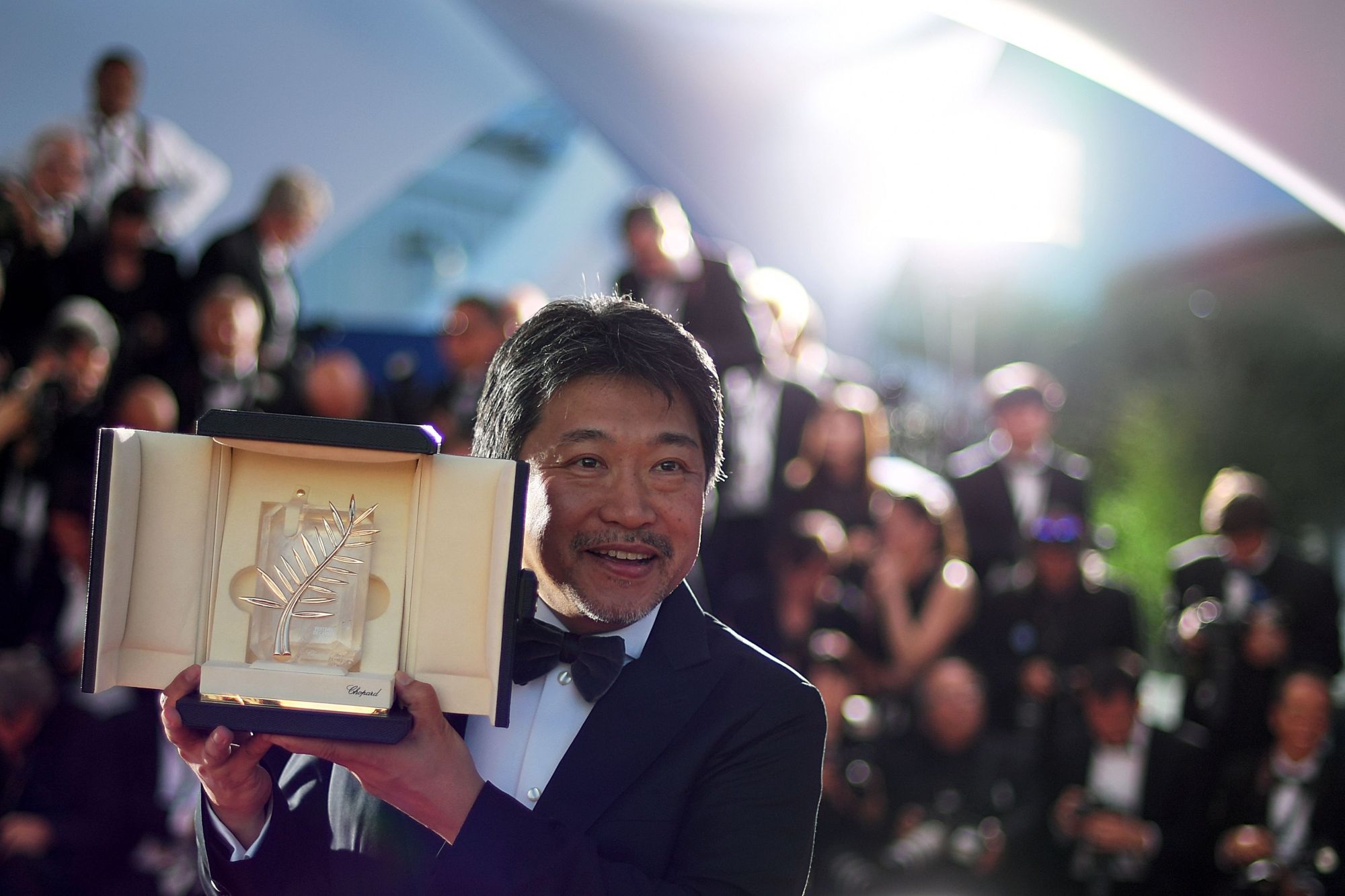
JIJI Press
After MABOROSI, Kore-eda continued to replicate the same success with his subsequent works. He shone in many award ceremonies and deservedly earned the title of International Film Festival King.
Thanks to the film AFTER LIFE, Kore-eda brought home the Best Film and Best Screenplay awards from the Buenos Aires International Festival of Independent Cinema. Furthermore, through NOBODY KNOWS, he won the Best Director award at the Blue Ribbon Awards. He also received the Jury Prize at the Cannes Film Festival for directing LIKE FATHER, LIKE SON.
This list is only a small portion of Kore-eda's achievements. There are still a series of films that have also excelled in award ceremonies such as STILL WALKING, I WISH, OUR LITTLE SISTER, and BROKER.
3. Stepping into Oscar Thanks to SHOPLIFTERS
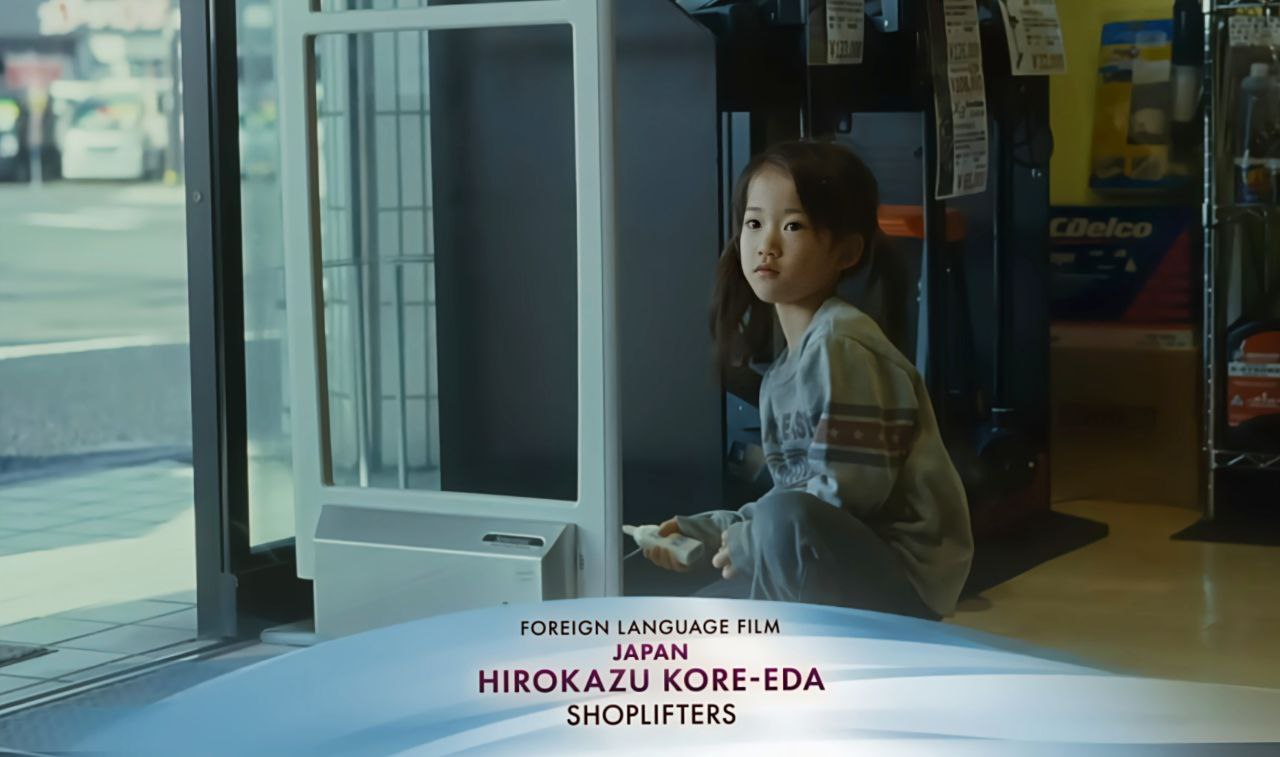
Oscars
In 2018, Kore-eda released SHOPLIFTERS, a film that tells the story of a poor family on the outskirts of Japan. The family consists of five members: Osamu as the head of the family, his wife Nobuyo, grandmother Hatsue, daughter Aki, son Shota, and an adopted child named Yuri. Due to difficult economic conditions, some members of the family are forced to steal to meet their daily needs.
In this film, Kore-eda introduces the concept of a family relationship that is not bound by blood ties. “At first, I thought, 'How can I create a family (film) that is not connected by blood ties?'” Kore-eda later concluded to Los Angeles Times, “I could connect them through crime.”
Because of Kore-eda's skill in presenting a complex and profound family story, SHOPLIFTERS succeeded in winning the Palme d’Or, the highest award at the Cannes Film Festival. From here, Hirokazu Kore-eda's name became more recognized in the global film industry. SHOPLIFTERS was also selected as Japan's representative for the Best Foreign Language Film category at the Academy Awards or the Oscars.
4. MONSTER, Cannes, and Yuji Sakamoto
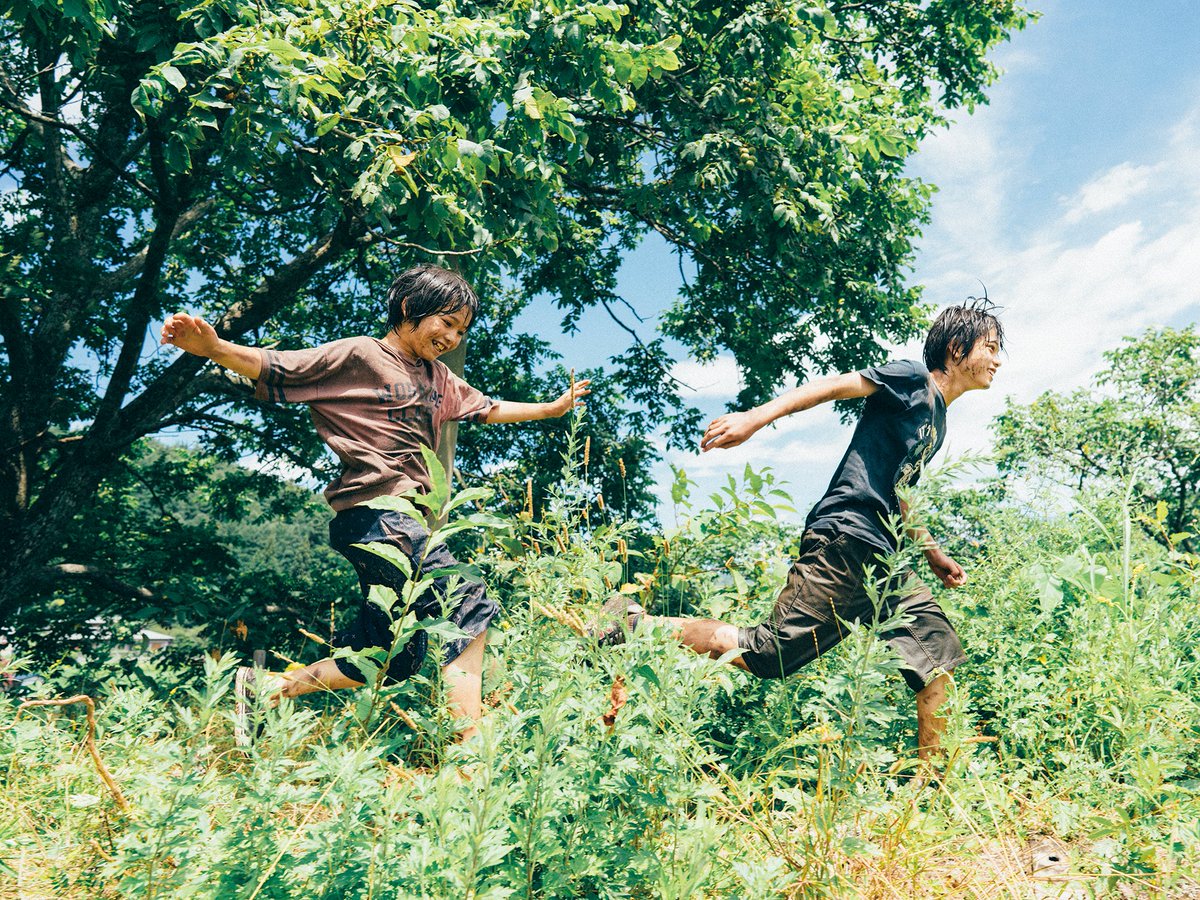
Toho
Kore-eda has handled two foreign-language feature film projects. He released an English-French film titled THE TRUTH in 2019 and a Korean family drama film, BROKER, in 2022. MONSTER then became the first Japanese film he worked on since the release of SHOPLIFTERS.
In this project, Kore-eda is not responsible for the film's screenplay. He collaborates with screenwriter Yuji Sakamoto. Kore-eda admitted that he has long wanted to work with Sakamoto. He feels that he has an interest in the same subject as the screenwriter.
MONSTER presents the story of two boys, Minato and Yori, who have feelings for each other. Unfortunately, Minato realizes that his feelings cannot be accepted by society's norms. This actually causes Minato to create a series of problems just because he can't speak freely.
In Indonesia, this film went viral and received a lot of positive responses. Netizens sympathize with the two main characters, referring to repressive adults towards children as the 'real monsters'. Meanwhile, MONSTER brought Kore-eda to Cannes for the ninth time. This film successfully won the Best Screenplay award and the Queer Palm.
5. Not Approved by the Mother
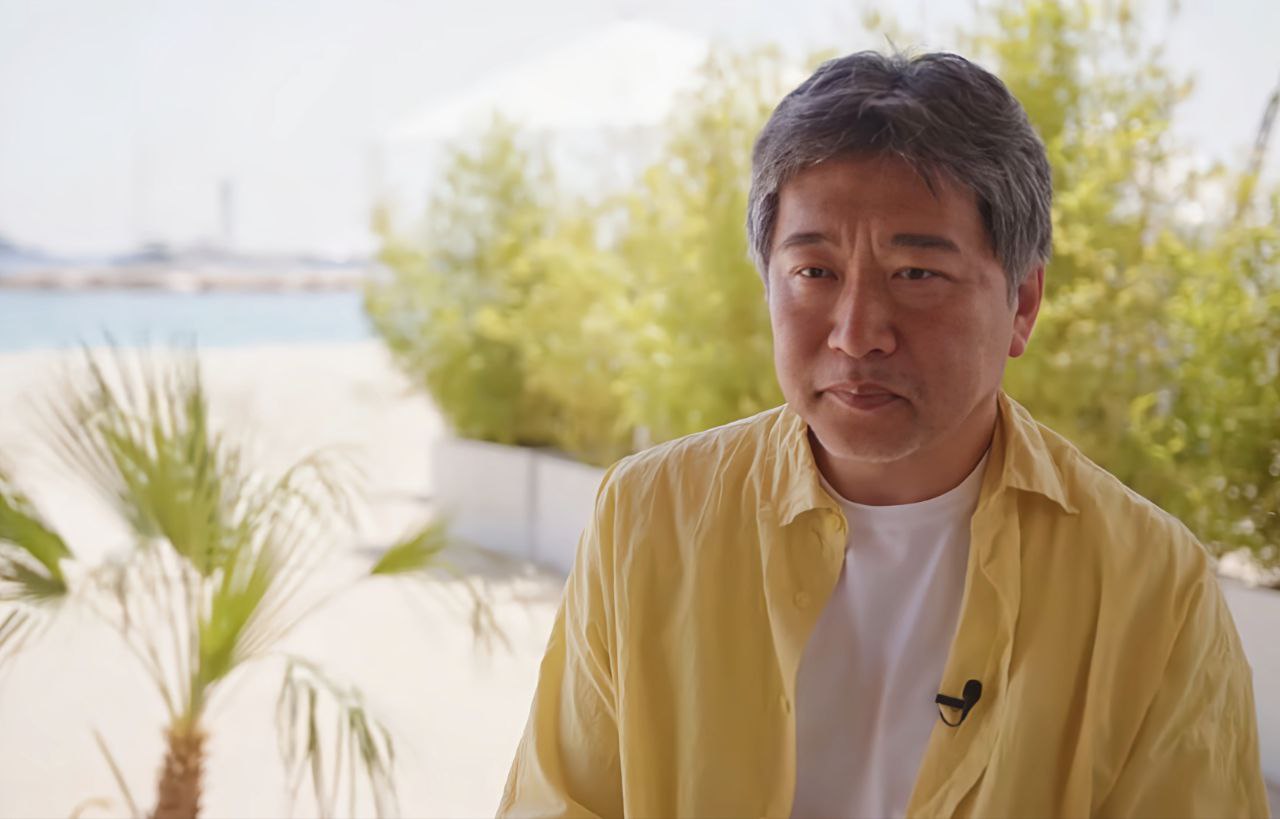
Golden Globes
Thanks to his mother, Hirokazu Kore-eda has been familiar with the world of film since he was young. They often watched movies together on television because they couldn't go to the cinema.
“My mother loves movies! She admires Ingrid Bergman, Joan Fontaine, Vivien Leigh. We couldn't afford to go to the cinema together, but she always watched their movies on TV. She would stop all family matters or discussions to watch these movies. We would watch them together. So I like movies - just like her,” Kore-eda revealed as quoted by The Guardian.
Although they both love movies, his mother did not approve of Kore-eda pursuing a career as a director. When interviewed by The Guardian, Kore-eda said, “My mother strongly opposed when I said I wanted to make films. She said I should become a civil servant. Because it's safe and guaranteed. But my mother was always proud of my films, and she would give her video tapes to all the neighbors.”
6. Defining Family through the Eyes of Kore-eda
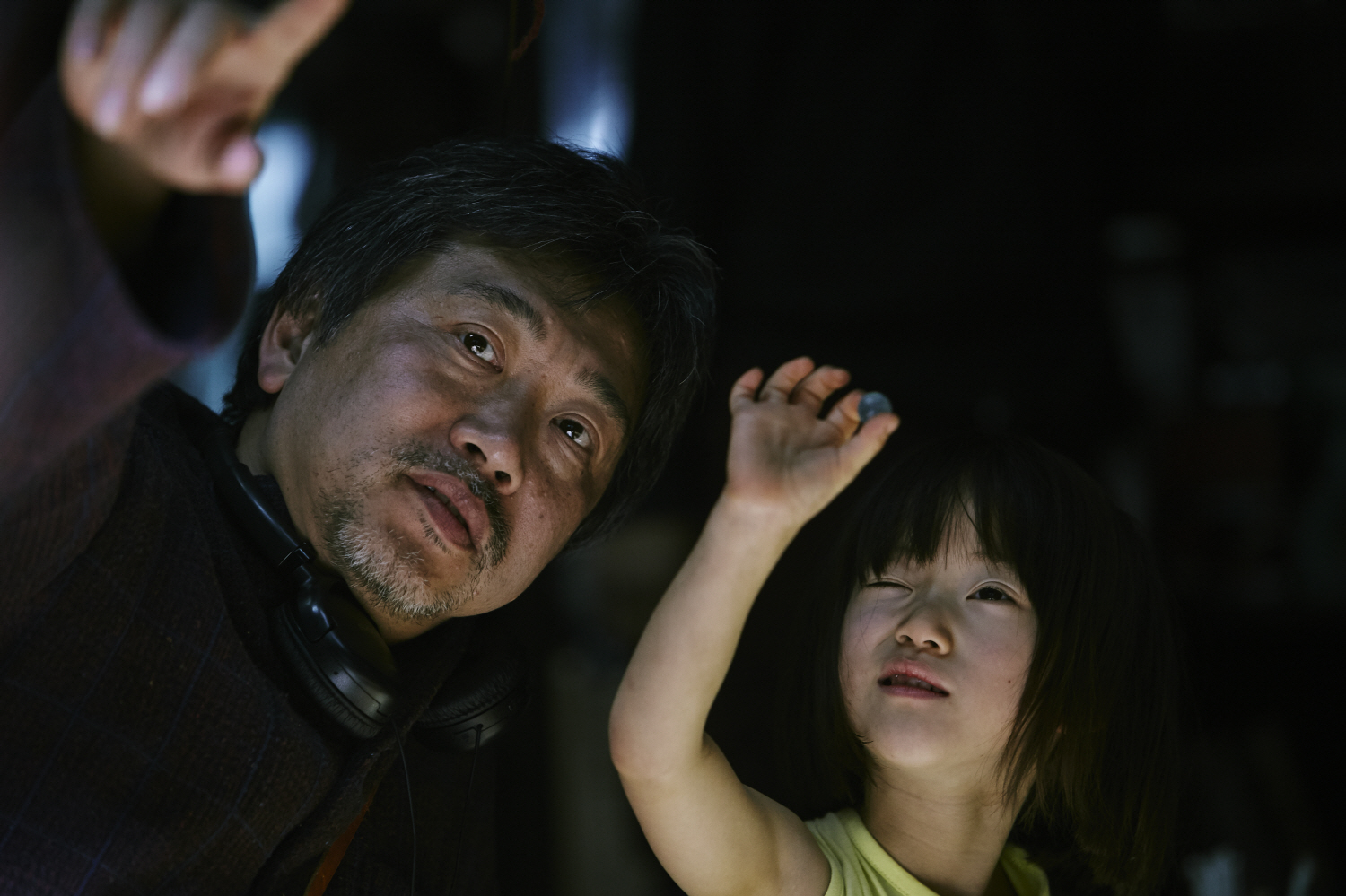
IMDb
Consistently making films about family, personal experiences seem to somewhat influence the director's perspective. Most of Kore-eda's films always contain touching and heart-wrenching dramas at the same time. The portrayal of the family shown is almost always 'imperfect'.
To The Guardian, Kore-eda said, "I enjoy creating stories about this. It is important to have a story about a family where some of its members are missing. But there are others who try to take on the role of parents. They try to rebuild that family bond. I like stories like that. It greatly affects me."
For Kore-eda, family is about filling the gaps. This way of thinking stems from the director's personal experience of experiencing many losses. He tells, "In the past 15 years, I have lost the figure of a father. I have also lost the figure of a mother. And now, I have a daughter. I have become a father. So I realize that whatever is missing in the family, we always try to take over."
7. Working with Children
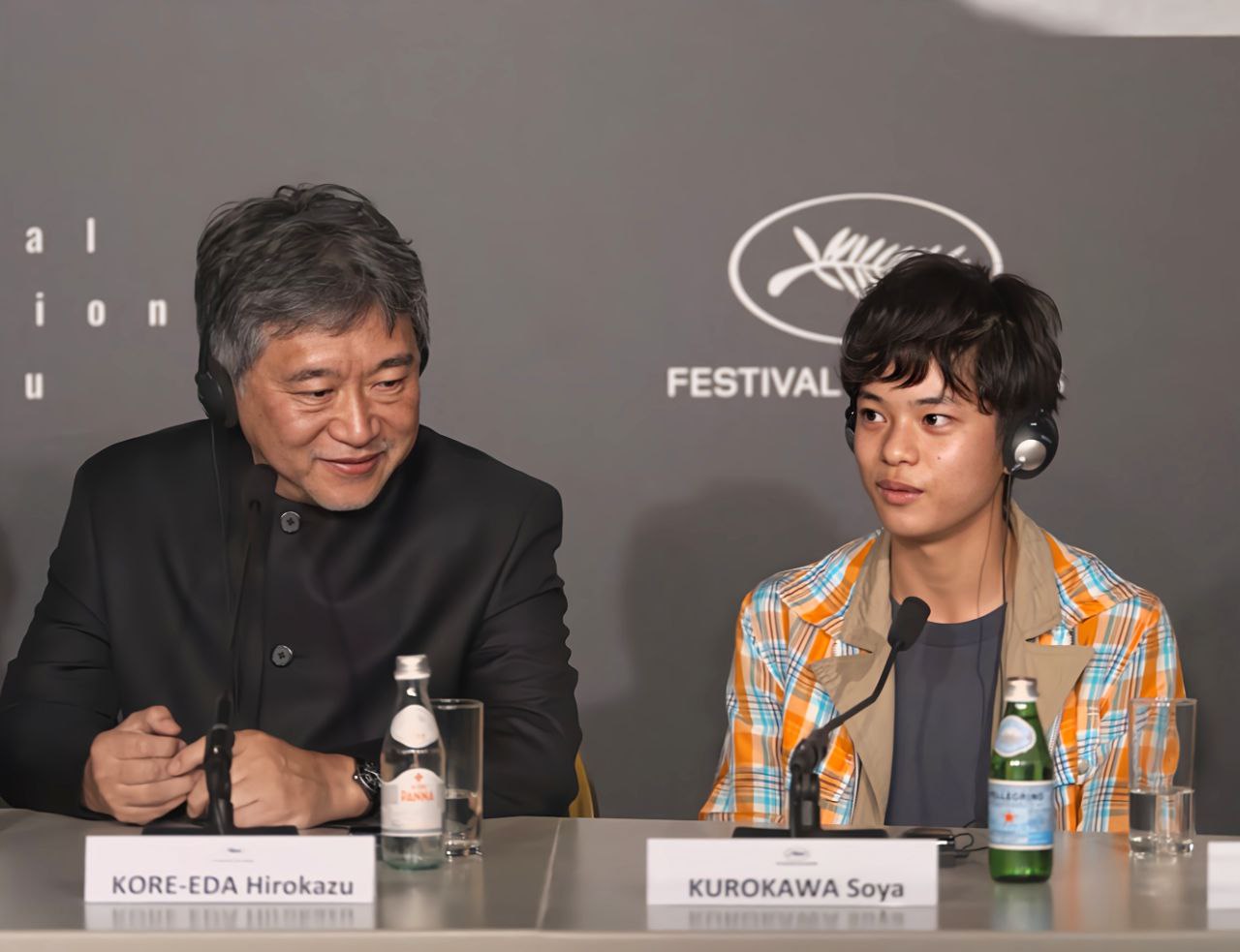
moviecollectionjp
In most of his interviews, there is one question that Kore-eda is often asked: how does the director work with and handle child actors?
The answer he always gives is consistent. “Usually when I work with children in my films, I don't give them the script beforehand. Instead, I explain the script and storyline to them on the shooting location. As a result, my films become closer to the true personality of the child actors,” said the director in an interview with Rough Cut.
Throughout his decades of work as a director, Kore-eda has almost always cast child actors. It started with his first documentary, LESSONS FROM A CALF, to his latest film titled MONSTER.
However, in the film MONSTER, Kore-eda takes a slightly different approach. He makes a strong effort to build characters and roles beyond the personalities of the child actors working with him. He does this with the help of several professionals.
8. Often Compared to Yasujiro Ozu
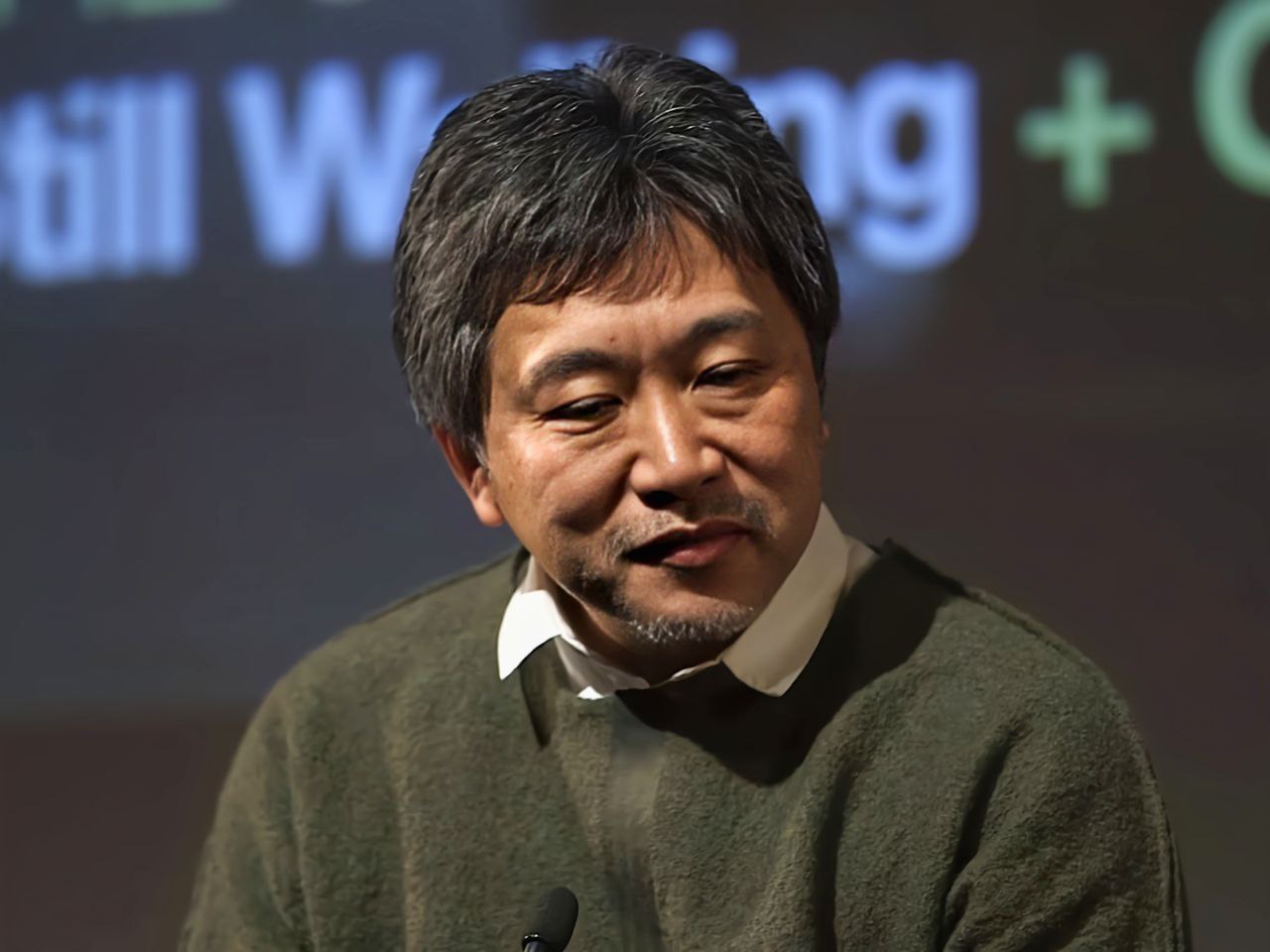
BFI
In the world of Japanese cinema, Hirokazu Kore-eda's name is often associated with Yasujiro Ozu, a renowned director who specializes in bitter family dramas. Even esteemed critic Roger Ebert once said, "If anyone can be considered a great successor to Yasujiro Ozu, it might be Hirokazu Kore-eda."
Kore-eda certainly feels honored by such praise. However, the director also believes that his work is more influenced by Mikio Naruse and Ken Loach. He revealed this in an interview with The Guardian.
"Of course, I consider it a compliment," Kore-eda cautiously said. "I try to express my gratitude. But, I think my work is more similar to Mikio Naruse [a Japanese director known for bleak working-class dramas] - and Ken Loach."
9. Most Memorable Film Works
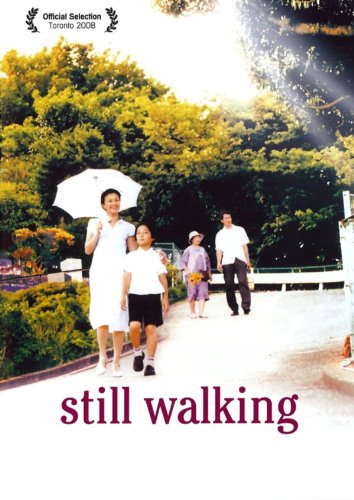
IMDb
Almost all of Kore-eda's films have received praise from critics and have shone at award ceremonies. This is certainly a great achievement. However, when asked about the film work that makes him most proud, Kore-eda's answer is somewhat surprising.
"All of my films are very different. Some are made well, while others are not," said Kore-eda as quoted on the A Rabbit's Foot website.
He then added, "Some are very similar to me, while others I think 'is that really my work?'. The film STILL WALKING was not released on a large scale overseas. The film was not selected for one of the three major film festivals. And for that reason - perhaps not 'pride' - but I feel very connected to that film."
10. Future Projects and Japanese Cinema
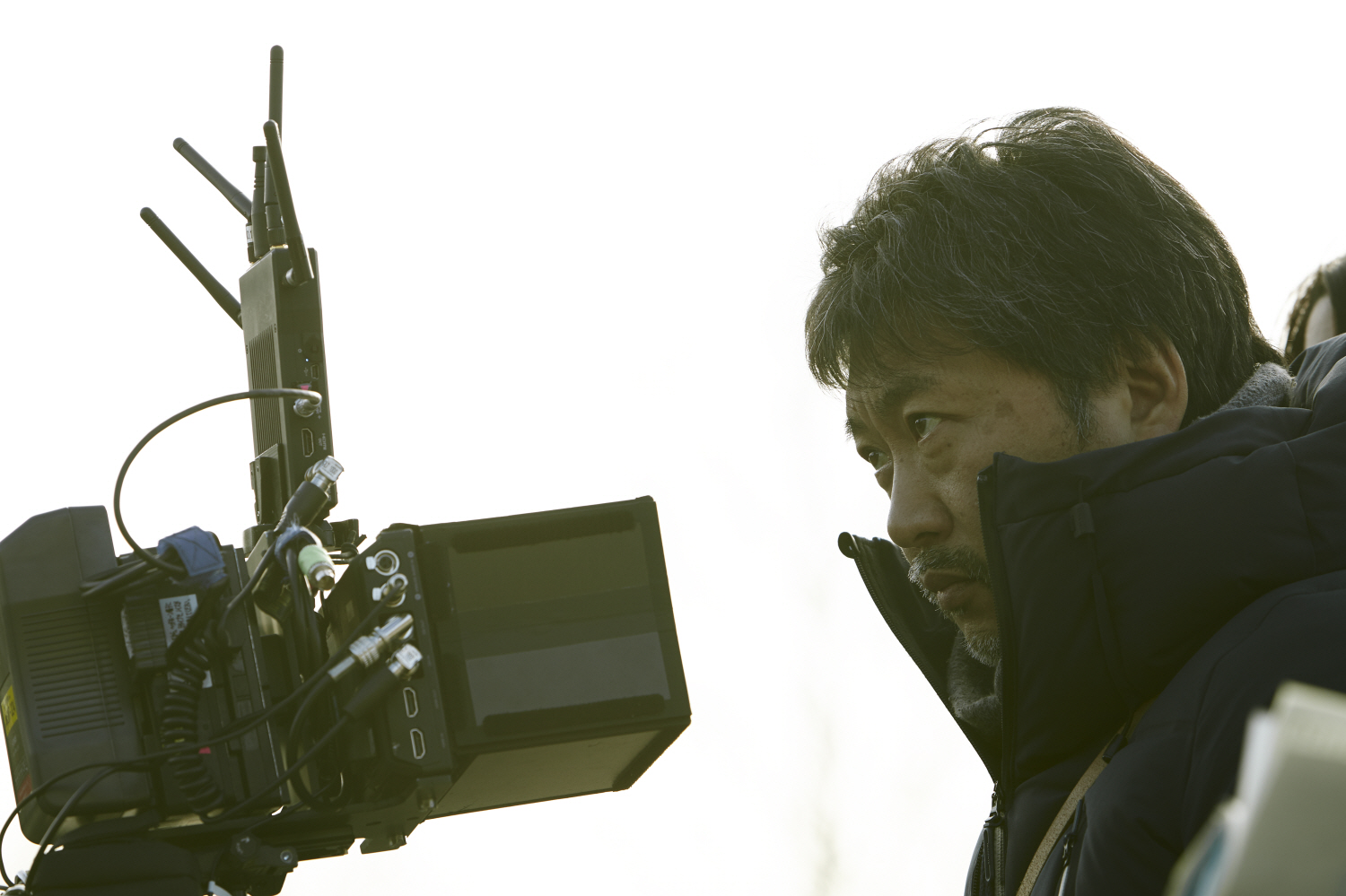
IMDb
After completing his latest project, which was released in 2023, MONSTER, Kore-eda did not relax. He continues to work hard and is currently preparing a samurai-themed series. In an interview with Deadline, Kore-eda revealed, "Currently, I am working on a streaming drama that was filmed last autumn. I am currently in the editing stage for it."
He continued, "We are not sure which streaming service will acquire it. But it is based on a popular NHK series made 40 years ago. It is a very samurai story. There are a total of seven episodes."
Kore-eda also shared his thoughts on the current state of the Japanese film industry. Despite the increase in newcomers and audience numbers, it does not necessarily reflect success.
"The staff are not making a living in this industry, and it is very difficult to keep them working in film. Many films are being produced now, but they are not generating any income. This is something we need to improve and enhance, otherwise it will be very difficult to continue making Japanese films in the future."
(kpl/lly)
Disclaimer: This translation from Bahasa Indonesia to English has been generated by Artificial Intelligence.
